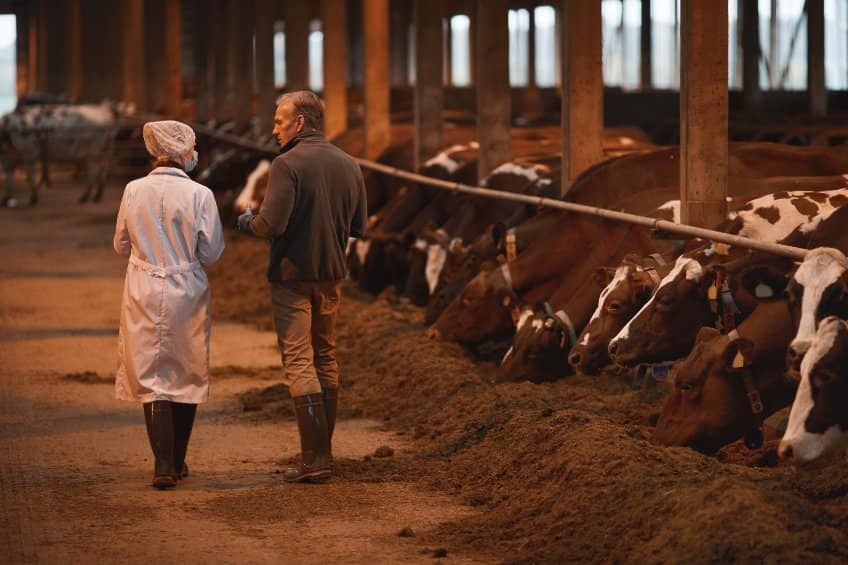The news nowadays regularly talks about shortages in consumer goods as well as staff shortages in areas such as doctors or lorry drivers, but what isn’t covered in the news is the current nationwide shortage of vets.
The current vet shortage in the UK has an impact on farmers and their ability to thrive as a business. As a dairy farm consultant at Douglas Green, we see the issues related to a shortage of vets on a daily basis, and we are doing everything we can to help farmers understand the issues and how to address them.
The advice below is part of the support that we provide. If you would like to know more or need urgent support, get in touch with our farm consultants or read more on our farm management consultants.
Farm vets shortages - Spending time where it counts
Today, most farm vets spend a lot of time travelling to different farms across the UK to resolve urgent issues, and they are unable to perform regular farm visits that help diagnose potential illnesses and diseases.
This has implications in two areas.
- Firstly, travelling across the UK to different farms is a huge consumption of time that could be better served onsite.
- Secondly, fixing urgent issues for a dairy farm is like putting a fire out that possibly shouldn’t have been able to start in the first place.
Quite often handling or dealing with urgent issues means treating a disease which could have been avoided with regular farm checks.
Cattle Diseases - Prevention is better than cure
There are currently more than 40 animal diseases in the UK that, if identified among cattle and other livestock, need to be reported immediately to the authorities - and keeping track of them is crucial to preventing these diseases from spreading.
Among those diseases, Anthrax, Bluetongue and Bovine TB are common among cattle and they are typically identified by patterns emerging in the health and wellbeing of cattle.
These patterns, and the diseases themselves, can only really be identified effectively with regular check-ups.
Without proper attention to these diseases, farmers can quickly find their farm in trouble. Anthrax, for example, can spread quickly, killing a large number of cattle, and actions need to be taken to stop the spread.
Identifying a disease early on, however, can allow a farm to isolate the infected livestock and to take the right actions before the disease spreads.
Using APHA to help you
Agricultural consultants or dairy farm consultants such as Douglas Green can work with you to ensure you have the right practices in place. We advise all of our clients what the best practices are and recommend working closely with APHA as much as possible.
All identified diseases need to be legally reported to APHA who keep track of any findings across England, Scotland and Wales.
If you aren’t familiar with APHA and what they do, APHA stands for The Animal and Plant Health Agency and this government organisation is responsible, among other things for “identifying and controlling endemic and exotic diseases and pests in animals, plants and bees, and surveillance of new and emerging pests and diseases”
APHA provides support at various levels including the provision of commercial products and services as well as offering an information portal with veterinary and other information to help.
Need further support?
With the shortage of vets across the UK, preventing and curing diseases is a bigger challenge than it has been in the past.
As dairy farm consultants, we are keen to help dairy farmers with the challenges that their business faces on a daily basis. If you would like to get expert advice, read more from our farm business consultants or call Douglas Green today to see how we can help.




